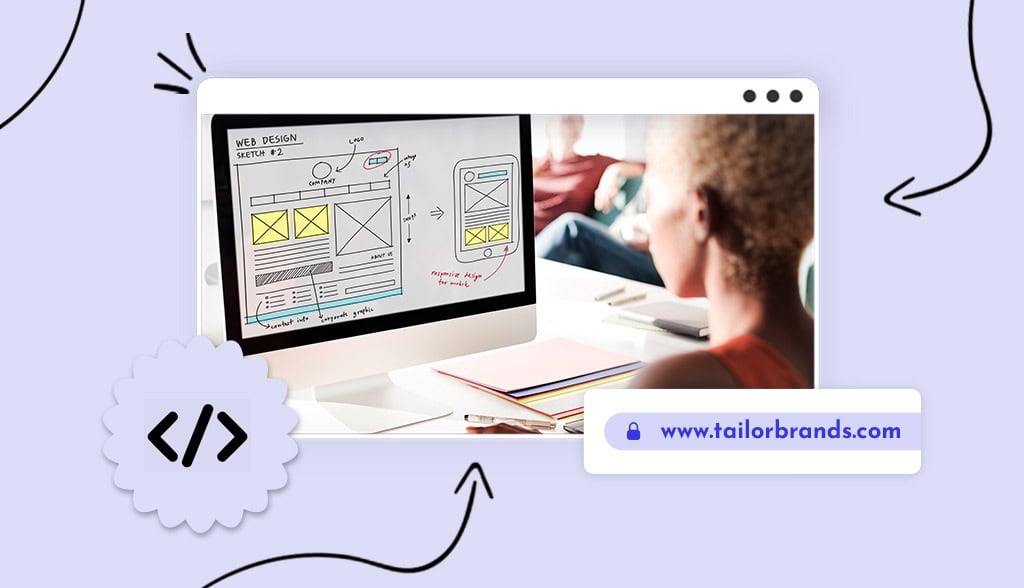What’s great about a website is that it can be whatever you want it to be. That said, the odds are you’re looking for your website to be one of the popular types of websites out there. And that’s not a bad thing!
Most websites online fall into one of these categories, and depending on which category you’re interested in, it has its own design guidelines and features. This makes creating the website you want a breeze. You don’t need to create the wheel; you just need a website that achieves your business goals.
Today’s most popular websites are:
- eCommerce website
- Business website
- Blog website
- Portfolio website
- Event website
- Personal website
- Membership website
- Nonprofit website
- Informational website
- Online forum
10 Types of Websites and How to Choose the Right One for You
So, below are the 10 most common types of websites online and how to choose the right one for your business. Let’s go!
1. eCommerce website
An eCommerce website allows you to sell products or services on your website. An ecommerce website is essentially an online store. Whether you’re selling your own products or services or using a dropshipping model, they both fall under ecommerce websites.
Crate & Barrel
Crate & Barrel sells high-quality home essentials and houseware products like furniture and kitchen appliances. While the business has been around since 1962, they’ve established an ecommerce website to be accessible to its customers.
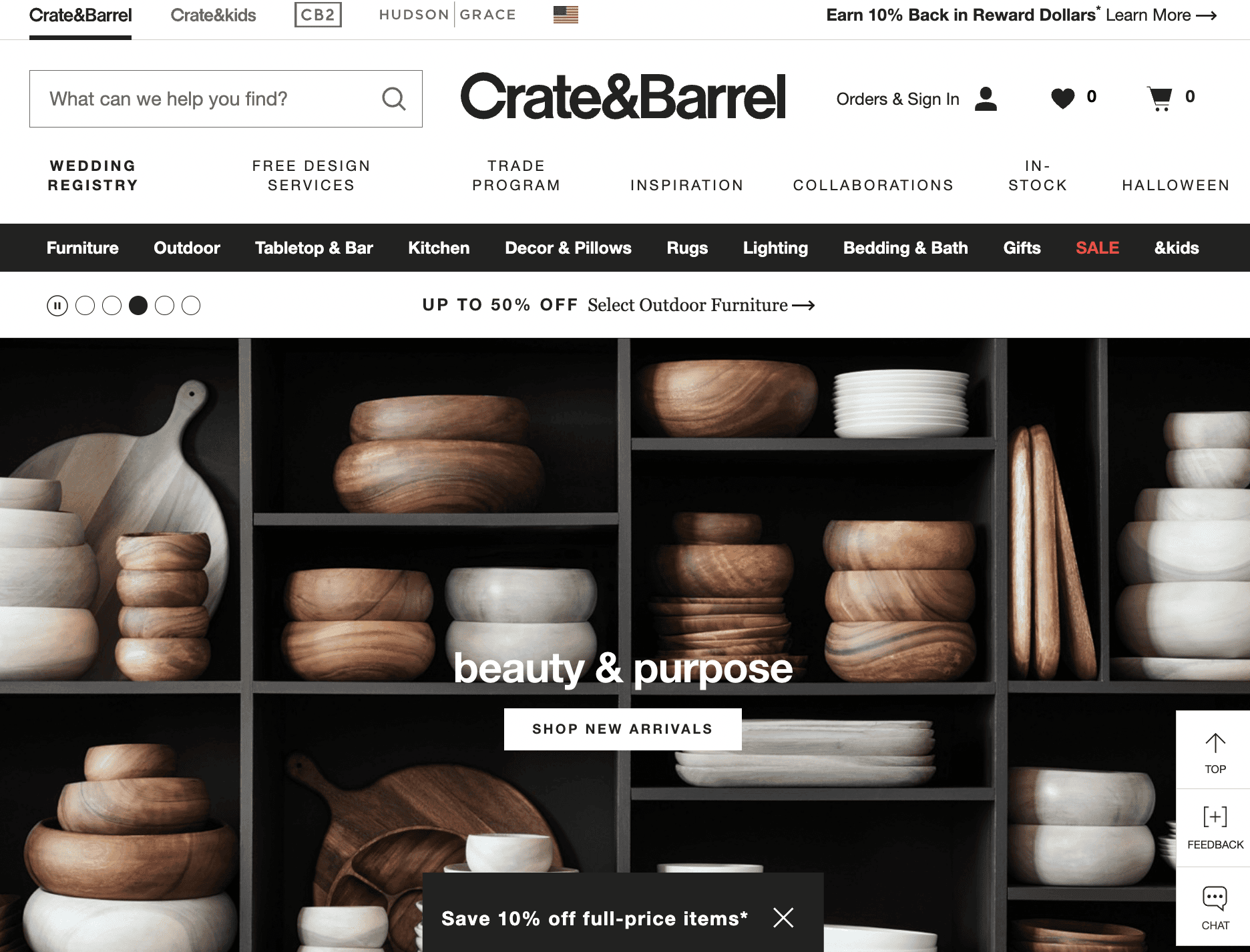
As you can see from their homepage, they have ecommerce features like a shopping cart, payment gateway, and inventory display. These features indicate that customers can make purchases directly from the website.
Ideal for: Businesses who offer a product or service and would like it to be accessible online. If you have a business and want to sell socks online, you’ll need an ecommerce website.
2. Business website
A business website establishes your brand’s online presence. This website does not offer products or services that can be purchased directly from the website. Instead, the website explains to customers what the business does and offers contact information or a booking system for a consultation.
Tessa Mac
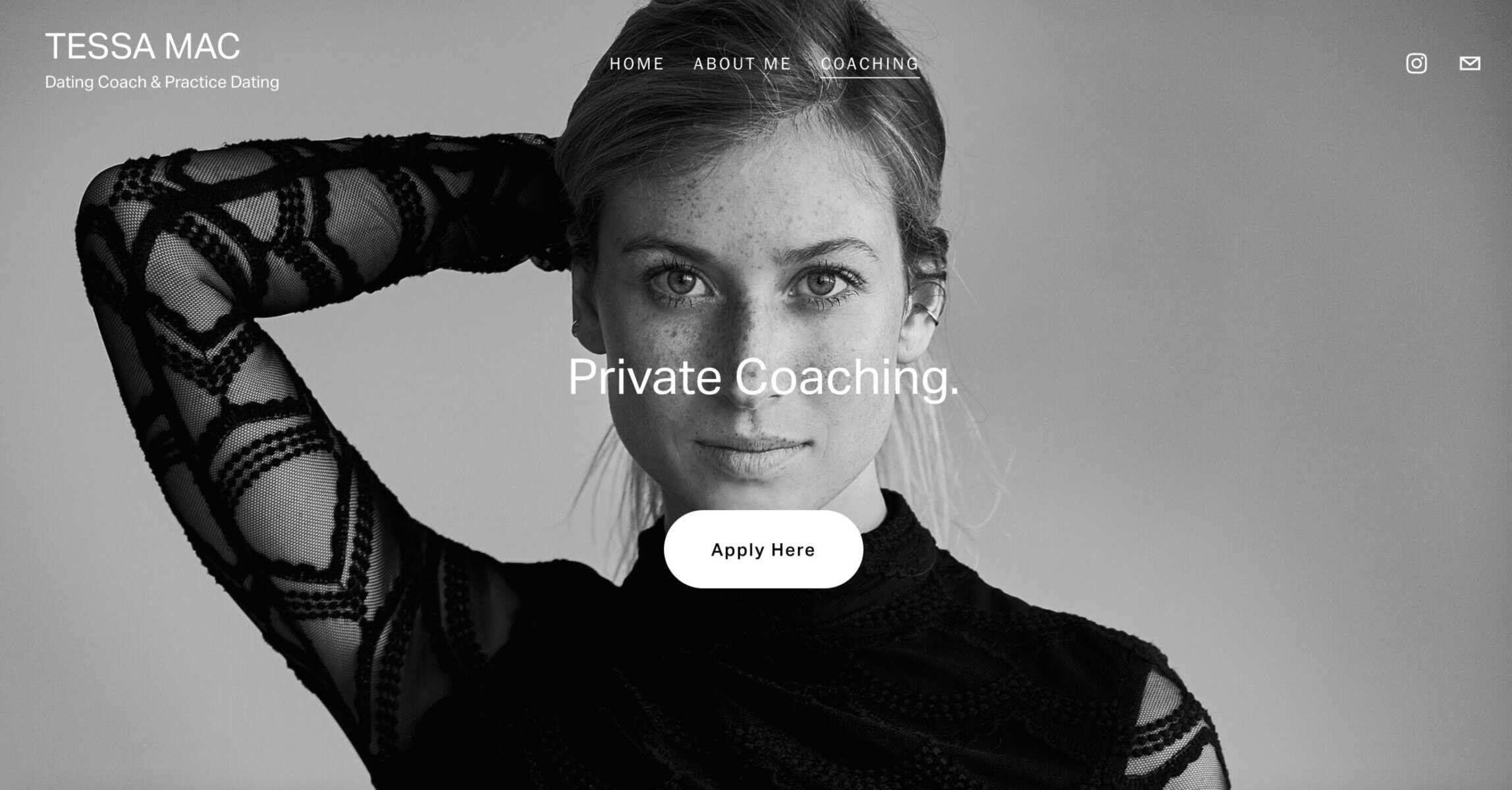
Tessa Mac is a dating coach and has a consulting website. You can learn more about her and book an appointment for a coaching session. Mac’s website is minimalistic yet uses strong imagery to draw the visitor in. As you scroll down, she explains what she does and how she helps her clients.
Ideal for: Businesses who are looking to provide consulting services or establish their brand’s online presence.
3. Blog website
Blogs are one of the most popular types of websites online and are great for people who want to share written and visual content about whatever they want.
Some people turn their blogs into businesses by working with advertisers or affiliates. If you’ve looked up a recipe for Mac ‘n’ Cheese, there’s a chance you’ve landed on a blog. Food, travel, and lifestyle blogs are the most common blogs out there, but blogging can be for any topic (seriously).
Most businesses today are jumping on the bandwagon as blogging is a great way to get more visitors to your website organically.
Wit & Delight
Wit & Delight is a lifestyle blog that offers a little bit of everything to its readers. It’s not a mommy blog, a fashion blog, or a design blog, but readers can go there to read stories about the different experiences women go through.
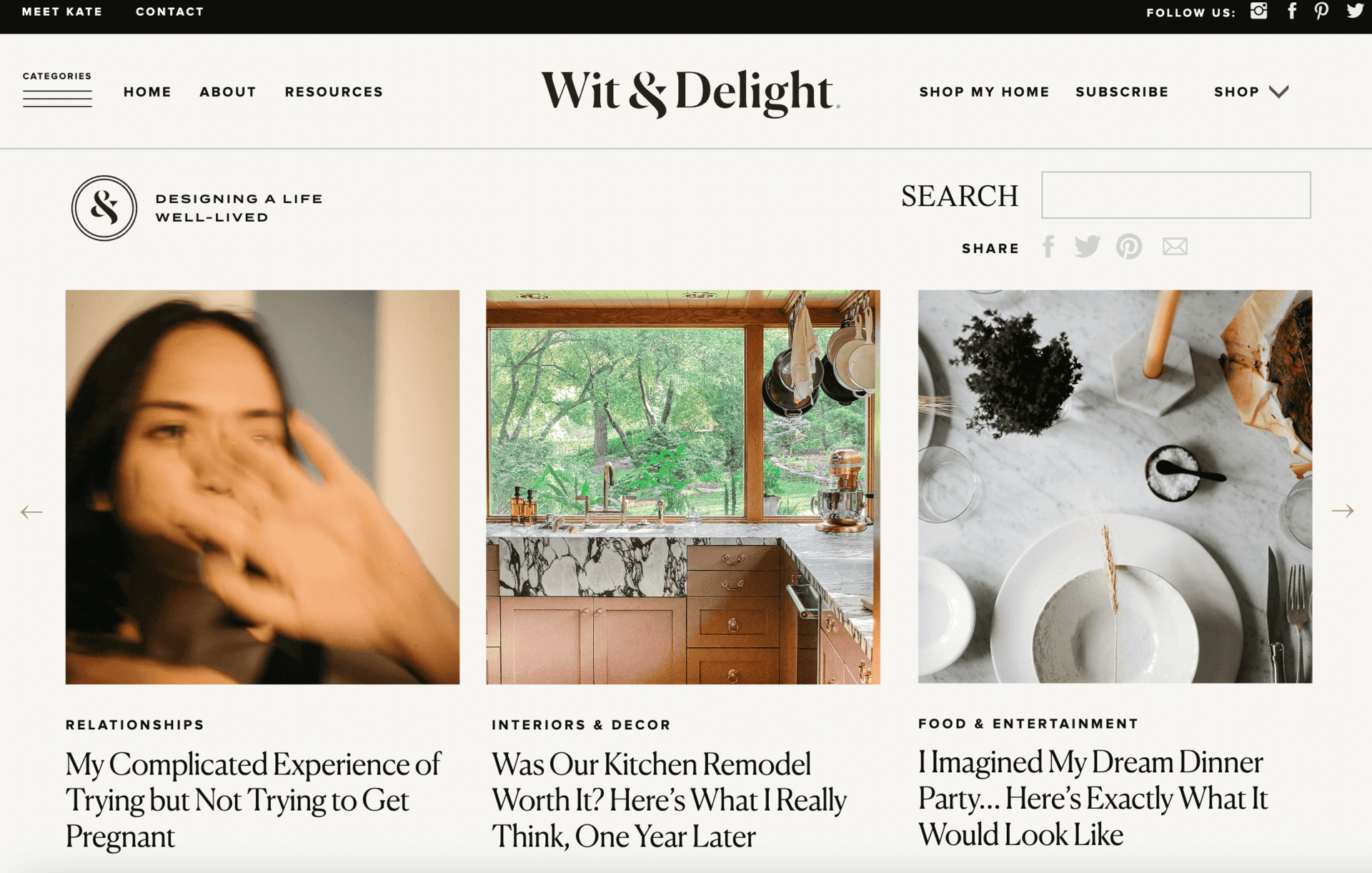
You can immediately see their homepage is full of articles, which is what a blog consists of. There are ads and affiliate links throughout the website, so these are some strategies they use to gain income.
Ideal for: While blogs are great for anyone who wants to share their thoughts and opinions in a creative space, blogs should be a part of any business to gain organic traffic.
4. Portfolio website
A portfolio website is a place where certain professionals can display samples of their work. Then, prospective employers can browse through their portfolio website and assess their skills and knowledge.
Richard Ekwonye
Richard Ekwonye is a creative developer. But I don’t have to tell you that. Ekwonye’s homepage states clearly what his profession is and how he can help visitors. As you scroll through his website, he displays samples of his work and his contact information.
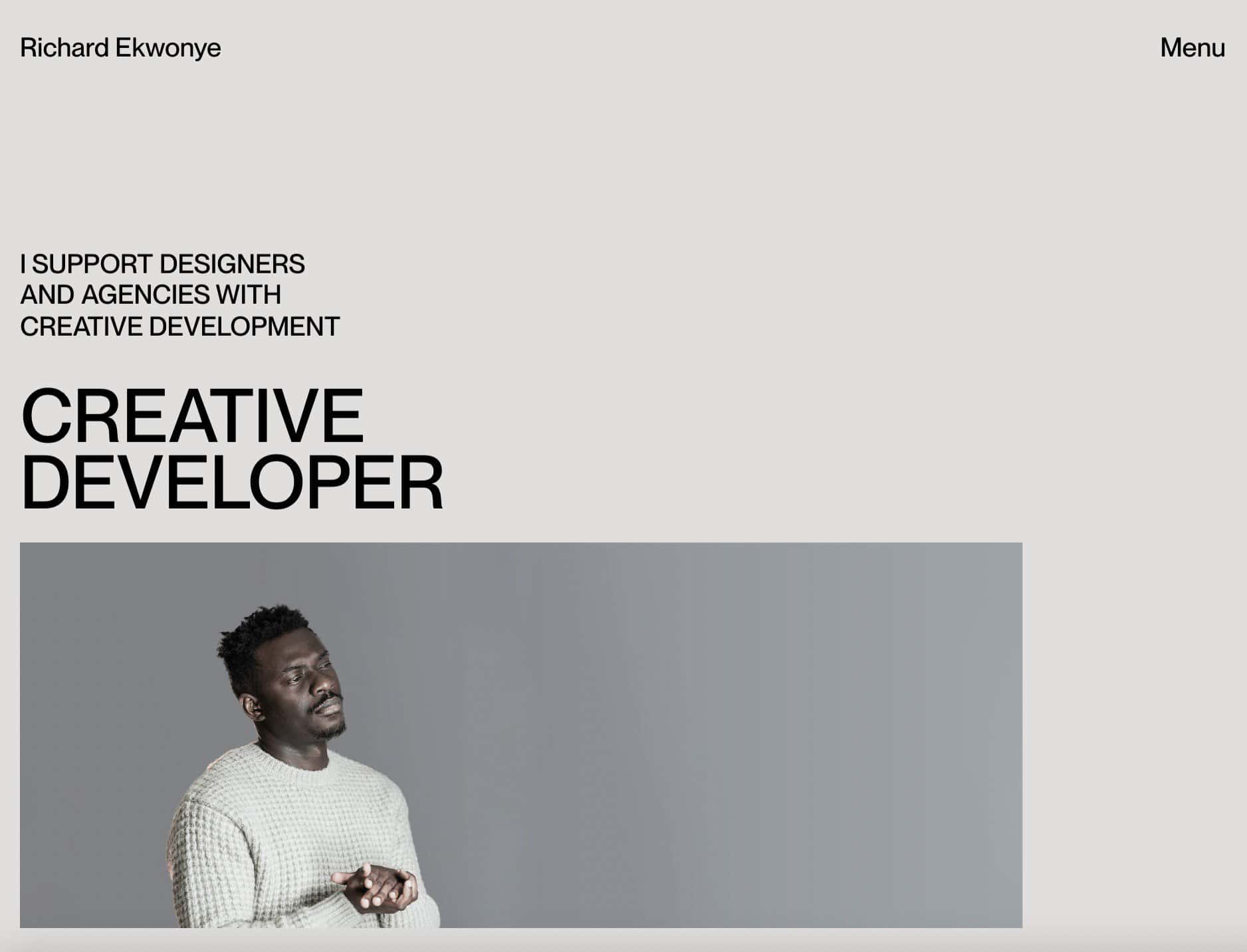
While there is a clear call-to-action (CTA), this website is less focused on provided services. A portfolio website focuses less on the services provided and more on creative results. This type of website highlights your professional accomplishments.
Ideal for: Portfolio websites are best suited for creative professionals, such as content writers, graphic designers, journalists, and interior designers.
5. Event website
An event website is a website where you can market the events you’re organizing. An event website can also be where you hold virtual events as well.
Comic-Con
Comic con is a comic book convention where fans gather to meet creators and experts. During the convention, there are special events and exhibits for attendees to enjoy.
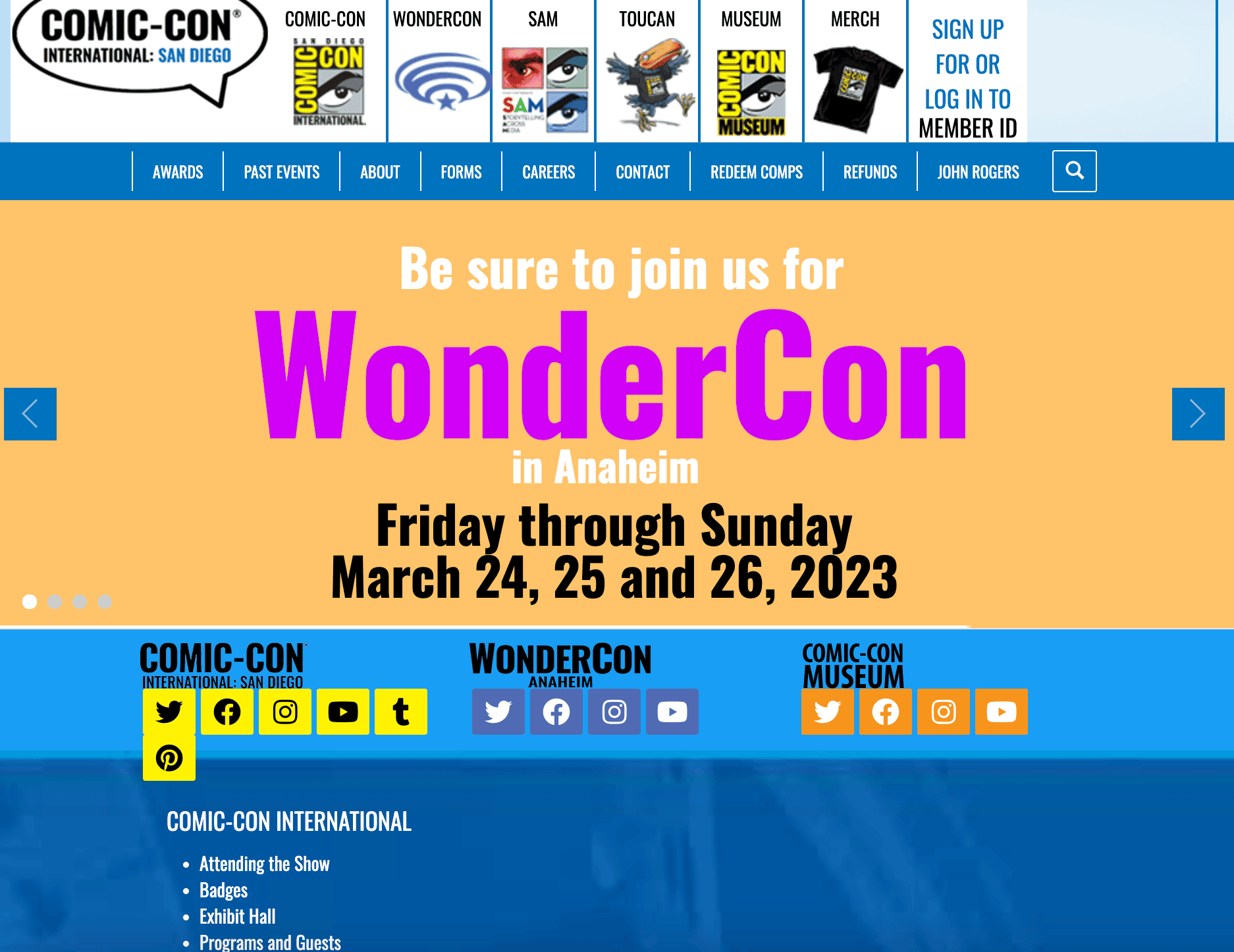
As you can see, the homepage of Comic-Con is easy to navigate and clearly show where and when the next Comic-Con convention will be held. Visitors can also access forums and purchase event tickets.
Ideal for: Businesses who plan on hosting events. You don’t need to be an event business to have an event website. However, if your business is hosting virtual or in-person events, this type of website may be for you.
6. Personal website
A personal website can be used to promote yourself or an interest of yours. For example, a personal website can be a CV website where you present who you are and your professional accomplishments. A personal website, while not a necessity, is a great way to boost your online presence and bring eyes to you.
Tony D’Orio
Tony D’Orio created a personal website of his photography work. On his site, he focuses on featuring his photography on every inch of his website.

His website is minimalistic, focusing solely on his interest: photography. His navigation menu can take visitors to his biography, awards, and contact information.
Ideal for: Anyone who wants to present themselves online and show more of their personality. It can be a CV website, a hobby website, etc. For example, if you want to stand out from your competitors on LinkedIn, create a personalized CV portfolio website.
7. Membership website
A membership website gives exclusive access to visitors who sign up or pay a fee to access the website’s full services. For example, an online magazine may have a signup requirement. Or maybe a dating website that has a members-only section.
MasterClass
MasterClass is an online subscription platform that offers pre-recorded tutorials and lectures from professionals. Students sign up for a monthly subscription and have access to a variety of classes ranging from photography to cooking to business.
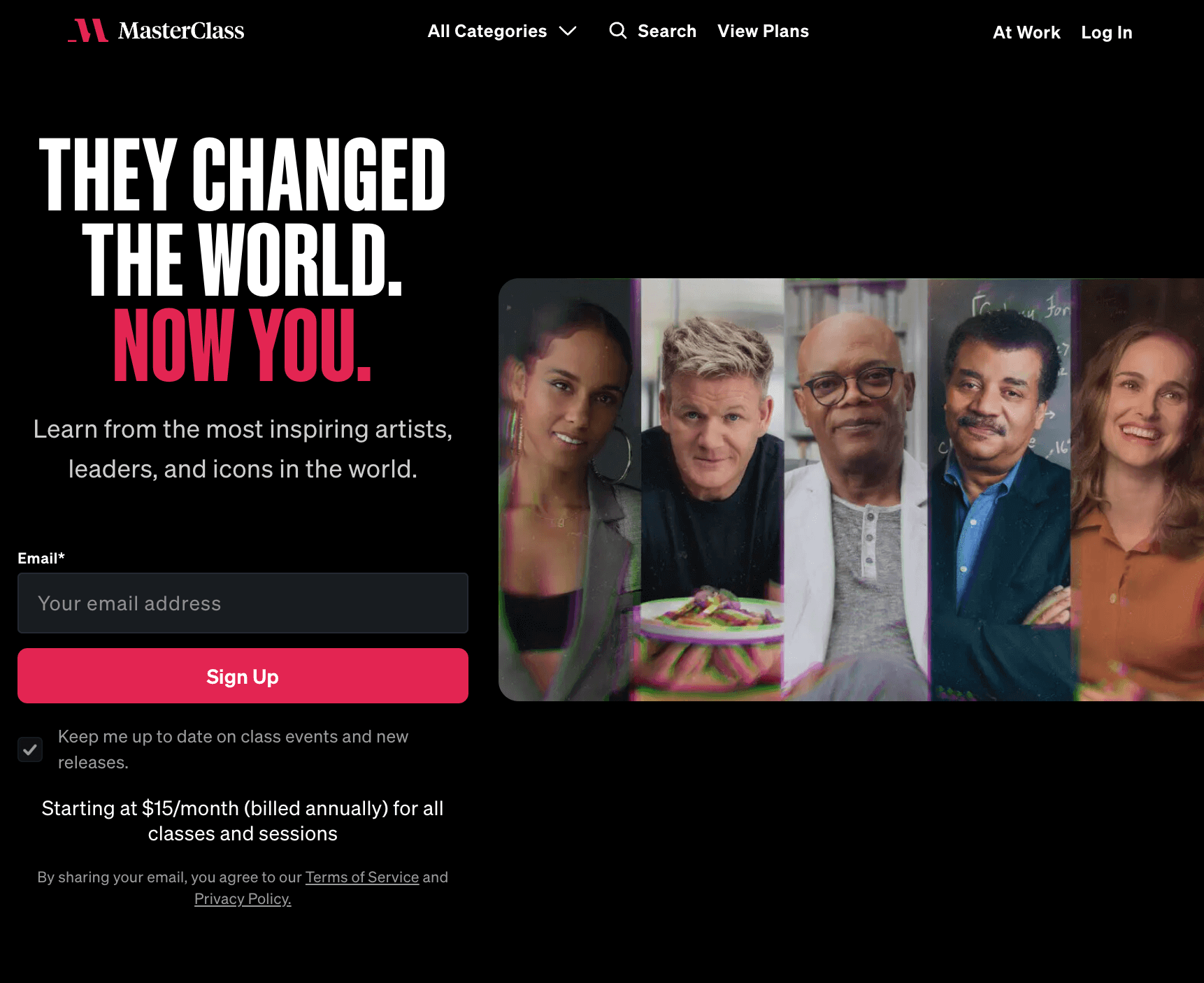
Ideal for: Businesses that want to provide content based on subscription – it can work in almost any industry. For example, if you have a fitness website, you can offer special workouts and nutritional advice in your member’s only area. Businesses can also offer a member’s page where visitors can access private content and engage with each other.
8. Nonprofit website
A nonprofit website provides information to visitors about your organization’s mission, values, and goals. Nonprofit websites include information about past, current, and future events and a donations page.
The Happy Herd
The Happy Herd Farm Sanctuary is located in Vancouver, Canada, and is a safe haven for all types of animals. People can visit the farm, volunteer, sponsor an animal or donate.
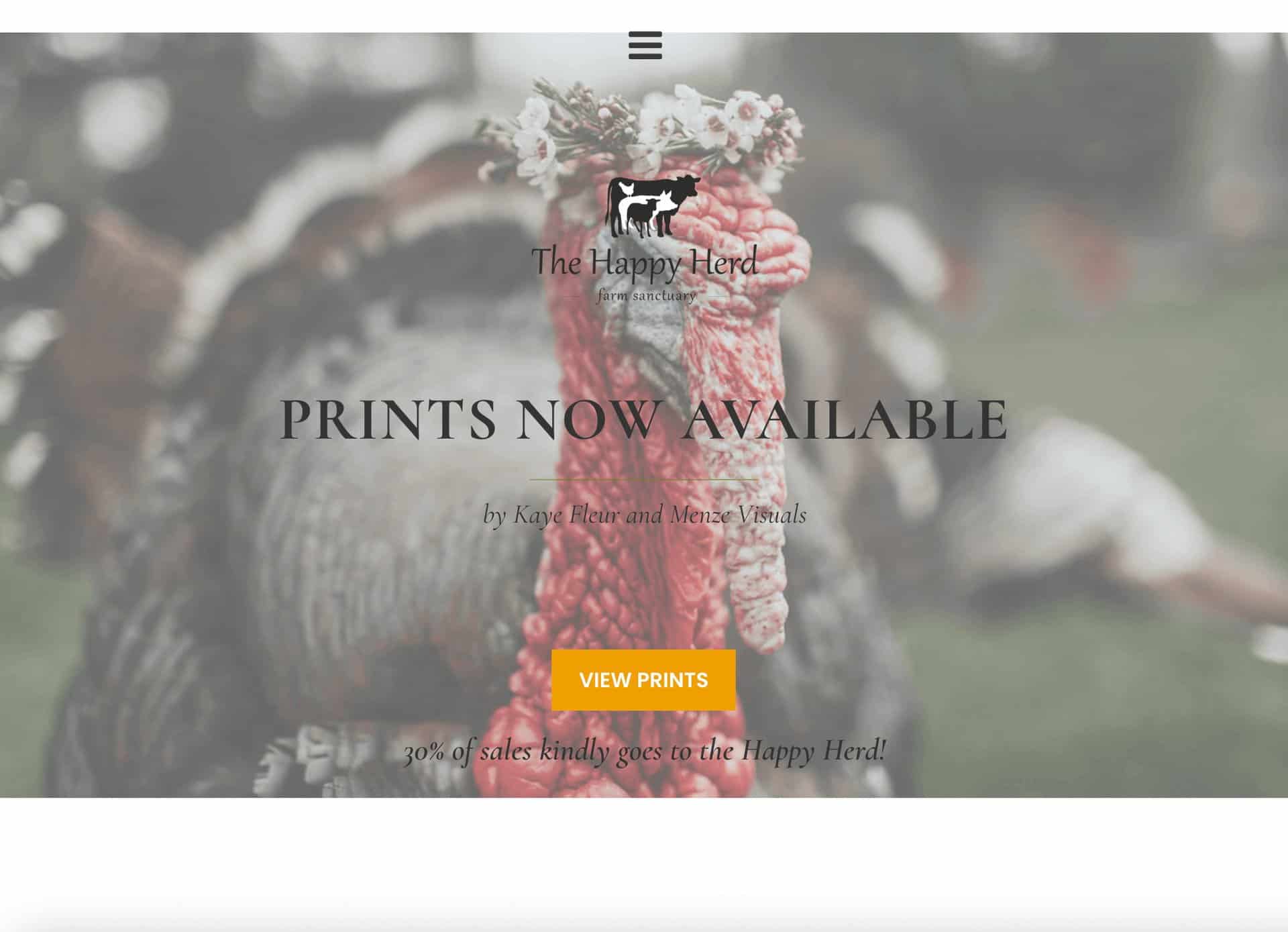
A nonprofit organization provides ample information about what they do and why they do it. However, they may also have a call-to-action such as a donate button where visitors can directly donate on the website.
Ideal for: Nonprofit websites are ideal for nonprofit organizations, institutions of faith, and schools.
9. Informational website
Informational websites are a resource center for information on multiple or single topics. For example, encyclopedias and online newspapers are informational websites. These websites typically include long-form articles for the visitors and a search function for visitors to navigate to topics of interest.
The Rocks
The Rocks Markets are a series of streets that turn into an artisanal marketplace during the weekends. This website provides information on the artists, where the market is located, the operating hours, and what visitors can do.
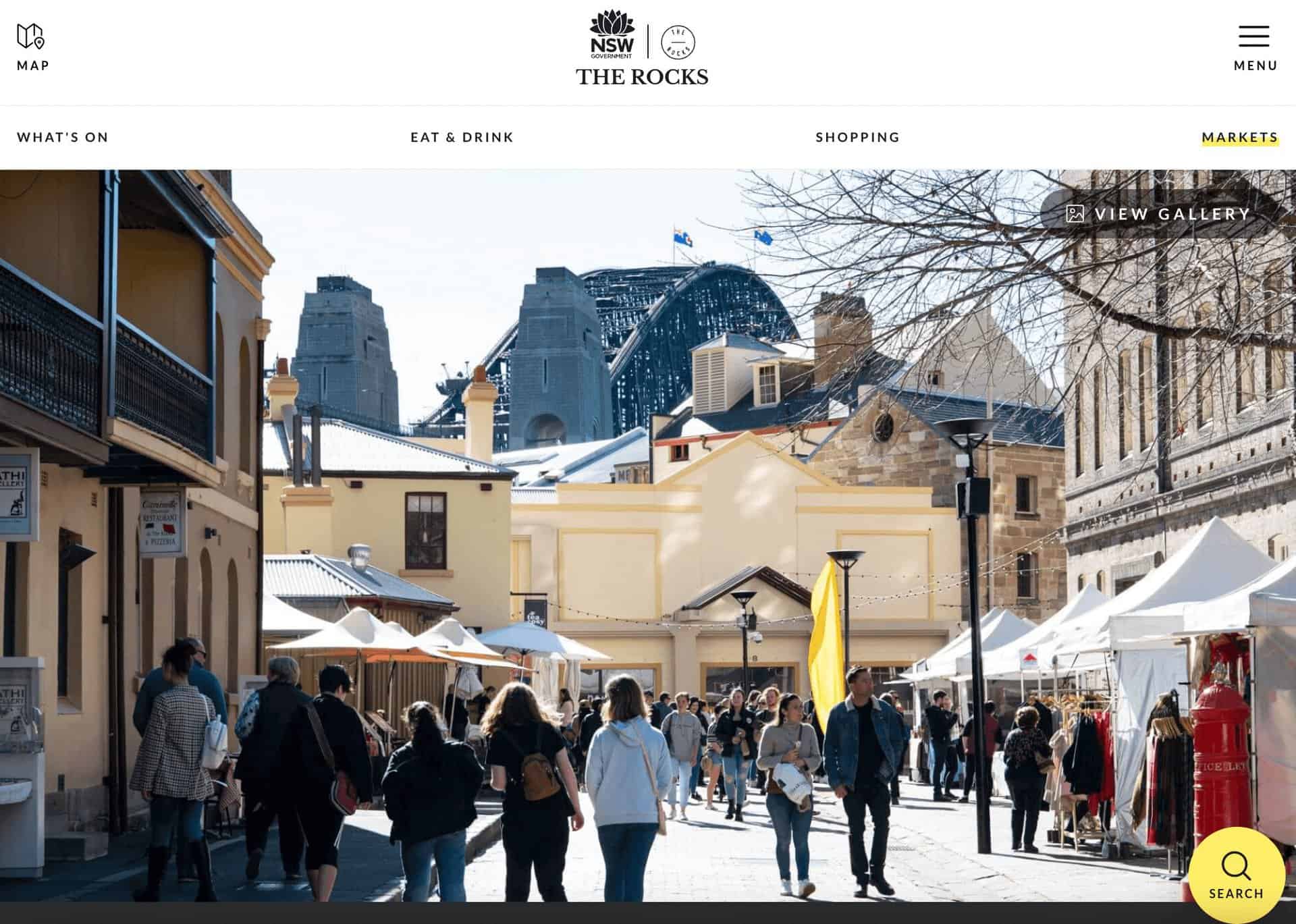
When looking at their website, the navigation is very clear and provides you with all the information you need if you plan on visiting The Rocks.
This isn’t a website for selling products; rather, it’s about providing information to the visitor that they can use to educate themselves.
Ideal for: Businesses may have a physical location but do not sell anything online. These businesses can include restaurants, cafes, etc.
10. Online forum
An online forum is a space where you can build a community around a specific interest. In online forums, users can engage in debate, discuss topics, and interact with other users and can be monetized by including membership access.
Reddit is one of the largest online forums with an intense navigation system to hundreds of different discussion boards within the forum.
Ideal for: For businesses who want to create social connections and a sense of community. For example, a business coach may have a forum for their clients to share business ideas and motivate each other.
Over to You
Once you have the type of website you want for your business, you can move on to setting up your website to fit your needs. And once you have that done, you’ll be able to welcome customers onto your website and get those sales going.
